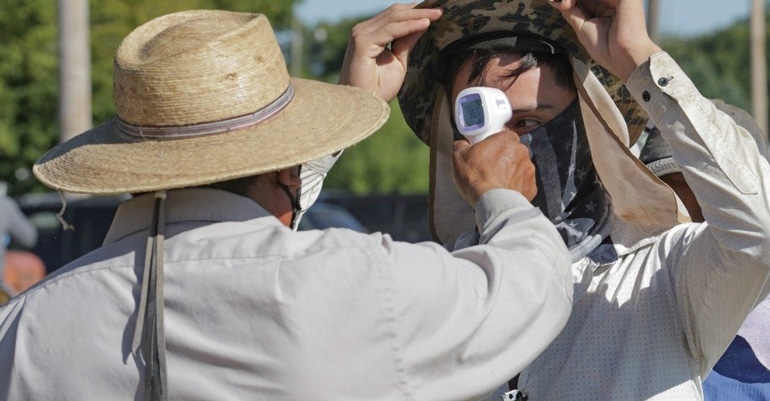November 3, 2020

The Michigan Occupational Safety and Health Administration (MIOSHA) has issued new emergency rules attempting to replace many of Gov. Gretchen Whitmer’s previous executive orders for COVID-19 workplace safety. These rules make protecting workers from COVID-19 part of the general responsibility of all employers.
The previous executive orders, invalidated Oct. 2 by the Michigan Supreme Court, covered those employers who required their employees to leave their homes for work. The new MIOSHA Emergency Rule now expands coverage to all employers that “employ one or more employees,” according to Craig Anderson, manager of Michigan Farm Bureau’s Ag Labor Safety Services.
“Under the Michigan Occupational Safety and Health Act, an ‘employee’ means ‘a person permitted to work by an employer’ — wage payment or other direct compensation is not required to be an employee,” Anderson says.
That little detail means small farms “employing” only their own family members are now covered by the MIOSHA Emergency Rules, according to Anderson, and are required to establish a “preparedness and response plan.”
Employers must assess all tasks for risk
Like previous executive orders, the new rules require employers to consider the risk of all the tasks involved in their business, rating them low, medium, high or very high. Employers must include how they will manage those risks within their plan.
“Employers must now evaluate ‘tasks,’ such as apple harvest, and ‘procedures,’ such as signing in, transportation to orchard, equipment use, break and meal periods, sanitation activities and housing, and incorporate those findings into their plans,” Anderson says.
This plan will include ways in which disease spread will be prevented, monitoring of employees for sickness, workplace controls, and provision of personal protective equipment (PPE). There are also specific requirements for some industries like retail, or meat and poultry processing. There are no specific additional standards for general agriculture.
Finally, the rules set out practices for training employees and maintaining records of these educational activities. Employers are required to designate a “worksite COVID-19 safety coordinator” to implement and monitor all aspects of these plans, and this person or another designee must always be on-site.
As new “rules” under the Michigan Occupational Safety and Health Act, violations may carry significant fines.
“If the violation is deemed ‘willful,’ the minimum penalty is $5,000,” Anderson says. “If the violation falls within the General Duty Clause, the maximum violation may be $7,000. Those violations deemed serious would have a minimum $400.”
MIOSHA has received more than 3,800 complaints from employees alleging unsafe working conditions related to COVID-19. In addition, there have also been 263 referrals from local governments, indicating that businesses were not following necessary measures to protect their employees from COVID-19.
“Several employers, including some in agriculture, have already received significant penalties prior to these [MIOSHA] Emergency Rules,” Anderson says. “The inclusion of these provisions may streamline MIOSHA’s ability to enforce COVID-19-related guidelines and potentially apply penalties for violations.”
To find more information and resources for developing a COVID-19 preparedness plan, visit michfb.com/mi/coronavirus.
Source: Michigan Farm Bureau, which is solely responsible for the information provided and is wholly owned by the source. Informa Business Media and all its subsidiaries are not responsible for any of the content contained in this information asset.
Read more about:
Covid 19You May Also Like




